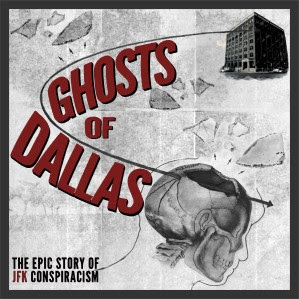On the general question
of Oswald’s pro-Castro ideology, and its influence on his actions, Albert
Newman’s The Assassination of John F. Kennedy: The Reasons Why (1970) is
a valuable resource.
On the importance
of Oswald’s Cuban dossier/correspondence file (and the haunting effect of his earlier
knockback by the Soviets) see Jean Davison’s Oswald’s Game.
Oswald’s letters
to the FPCC etc., and the replies he got back, are quoted in many books; but
the best one-stop shop for such information is, as always, Vincent Bugliosi’s Reclaiming
History.
The story about
Oswald’s crying jag on the night of June 30, 1963 – and the snatches of Oswaldian
dialogue from that night – come from Priscilla McMillan’s Marina and Lee.
Marina Oswald’s
“window dressing” quote comes from her Warren Commission testimony.
The quotes I read
out from Carlos Bringuier (“I had some feeling that I could not trust him”, “He was
trying to appear as a martyr”) come from his Warren Commission testimony. So
does Oswald’s reported line to Bringuier (“Okay Carlos, if you want to hit me,
hit me.”)
Donald Trump’s “Oswald
having breakfast” routine comes from a speech he gave in Cleveland on July 22,
2016, which can be watched here
if you fancy it. His Oswald-related remarks begin at 00:22:40.
Both of Oswald’s
appearances on WDSU radio can be heard in full here at David Von Pein’s JFK Channel
on YouTube.
For the minutiae
of Oswald’s 1959 attempt to turn in his passport at the American Embassy in
Moscow, see the Warren Commission testimony of Richard Snyder.
On Operation
Mongoose and the possibility that Castro’s “terrorists” remark was on Oswald’s
mind when he shot Kennedy, see David Belin’s Final Disclosure.
The French
journalist present in the room with Castro when news of Kennedy’s shooting came
through was Jean Daniel, who recounts the scene here.
Regarding the
possibility that Oswald floated the idea of shooting Kennedy during his trip to
Mexico City, see (for example) Gus Russo’s Live by The Sword and Philip
Shenon’s A Cruel and Shocking Act. Regarding the possibility that he
disclosed his intentions to anti-Castro Cubans, see Vincent Bugliosi’s
discussion of the “Odio incident” in Reclaiming History. I will be
examining both these possibilities in a later episode.
My account of
David Belin’s theories about Oswald’s post-assassination plans draws on both
books he wrote about the assassination: Final Disclosure and November
22, 1963: You Are the Jury.
On the importance
of Oswald’s clenched-fist salute, see Bugliosi’s Reclaiming History,
which isn’t just the most comprehensive resource for evidence about the case –
it’s also the most sustained attempt ever (more sustained even than the Report
of the Warren Commission) to contemplate all the evidence rationally and think
rigorously about its meaning.
Josiah Thompson’s
“There was no why …” quote comes from Errol Morris’s short film November 22,
1963 which can be watched here.
Robert Oswald’s
quote about his brother’s motive comes from this
2013 interview with PBS.
The detective at
Oswald’s side when he died was Billy Combest, whose description of Oswald’s
dying gesture comes from an interview he gave to Anthony Summers, quoted in the
text and endnotes of Summers’s Not in Your Lifetime.
